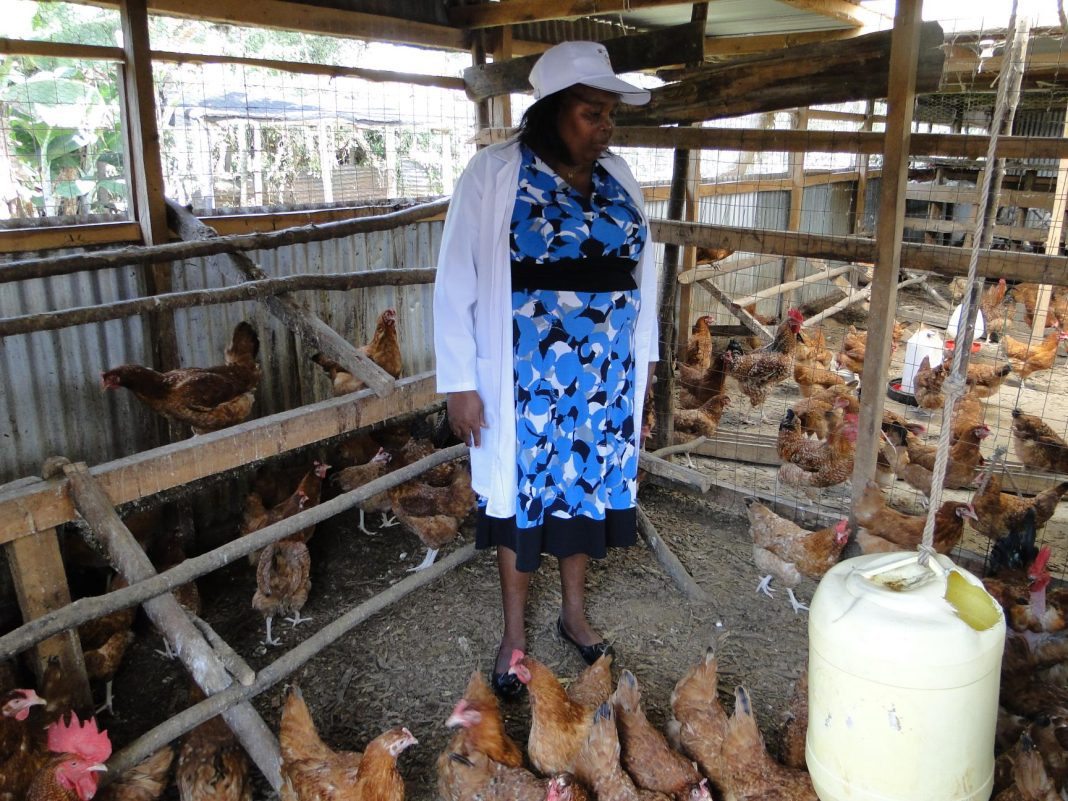Poultry farming can be a highly profitable venture when managed properly—something Winnie Cheruiyot from Tumbelion village in Kaplong, Bomet County, knows firsthand.
Cheruiyot started her poultry journey in 2015 by acquiring 300 chicks from the Kenya Agricultural and Livestock Research Organization (KALRO).
By 2021, after undergoing in-depth training in poultry management—including care techniques, brooding, nutrition, disease prevention, and record-keeping—she qualified as a distributor of KALRO’s improved chicken breeds.
“I received training and then partnered with KALRO. I constructed a poultry house, which passed their inspection standards,” she explains.
Her first consignment from KALRO included 500 one-day-old KC1 chicks, 300 of which were female. Once they began laying eggs, she sold them to local farmers.
“I didn’t struggle to find buyers. The demand was overwhelming, which kept me going,” she recalls.
Cheruiyot noticed a strong market preference for the KC1 variety due to its striking black-and-white speckled appearance. This enhanced indigenous breed, also called mottled or speckled chicken, stood out for its looks and performance.
According to KALRO experts, the KC1, KC2, and KC3 breeds are ideal for both small-scale and commercial poultry farming due to their favorable traits.
These birds grow quickly and begin egg production as early as four and a half months, in contrast to traditional local breeds that take up to eight months. Male birds can reach up to 2kg in just four months.
Cheruiyot’s initial venture brought in a total of Sh350,000 after she sold all her chicks.
“That was a huge sum for me. I had never handled that kind of money without needing a loan,” she says.
This success confirmed to her that poultry farming is a rewarding business. She found a reliable market in Bomet and Kericho counties.
“Poultry is a worthwhile investment. With proper planning and effort, the returns are significant,” she adds, noting that the proceeds allowed her to buy a vehicle.
Her income increased even more through the sale of one-month-old chicks. “At that age, their upkeep costs are still low,” she notes.
She also earns from selling meat and eggs. Regular eggs go for Sh15 each, while fertilized ones fetch Sh30.
“I sell extra roosters whenever I have them. I also cull the hens for meat after 60 weeks,” she says.
